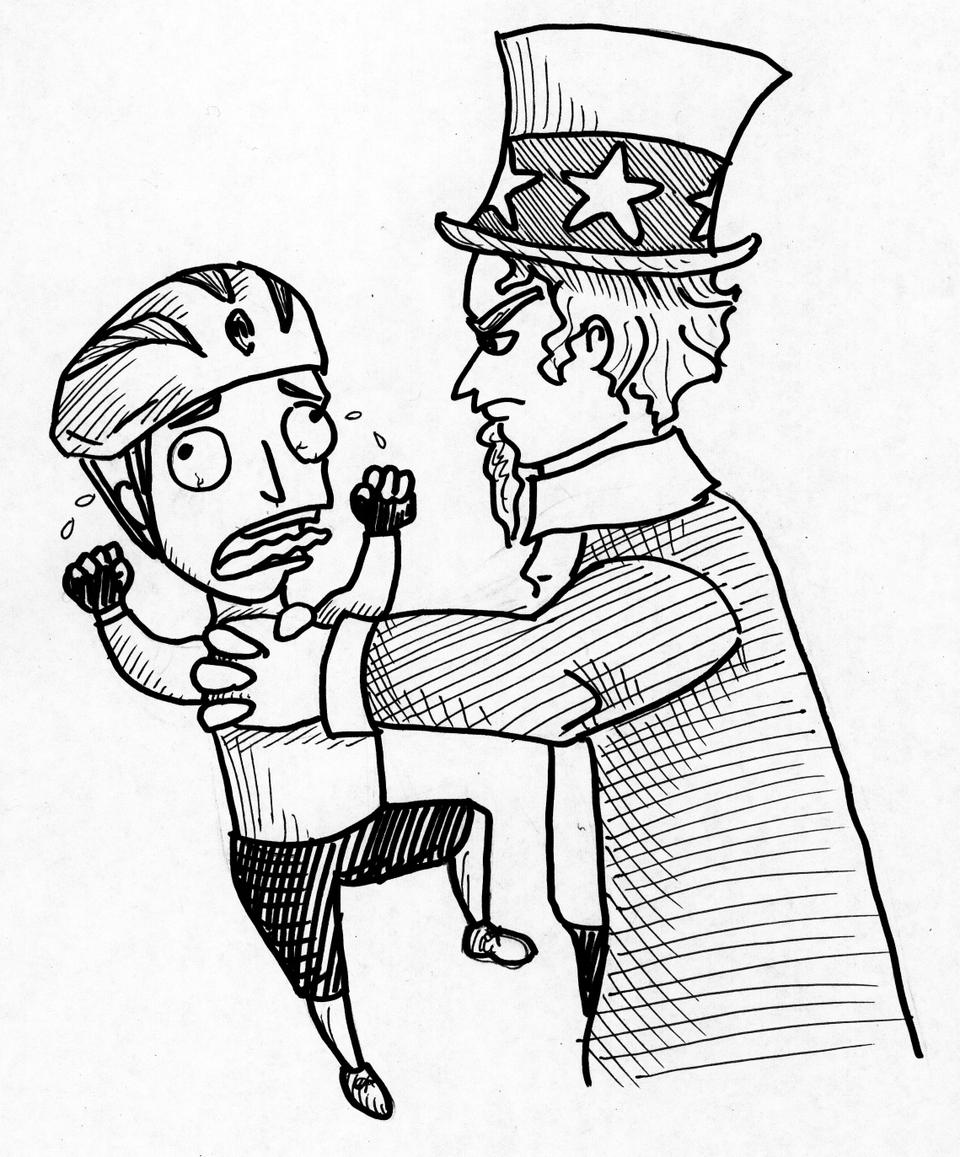
News
Cambridge Residents Slam Council Proposal to Delay Bike Lane Construction

News
‘Gender-Affirming Slay Fest’: Harvard College QSA Hosts Annual Queer Prom

News
‘Not Being Nerds’: Harvard Students Dance to Tinashe at Yardfest

News
Wrongful Death Trial Against CAMHS Employee Over 2015 Student Suicide To Begin Tuesday

News
Cornel West, Harvard Affiliates Call for University to Divest from ‘Israeli Apartheid’ at Rally
Let Them Play
The government should stay out of the sporting business

When avid followers of sports scandals were preoccupied learning the bizarre details of Manti Te’o’s non-existent love life, Lance E. Armstrong, the former holder of seven Tour de France victories, finally sat down and came out as one of the country’s most loathsome liars and one of its most arrogant cheats. The reaction to his two-part interview with Oprah Winfrey was a mixture of reprobation and ennui, tinged with the cynical realization that Armstrong’s motive for his remorseless confession was to get back in good standing with irascible bureaucrats in the cycling firmament.
A pointed few in the media have defended Armstrong on the basis of his assertion that “if they gave Tour de France trophies to people who were drug-free, they would have to find their winners in grade school.” While I am sympathetic to that point, this is not meant to be an apologia for Armstrong. It is fair to be annoyed and angered at the duplicity of Armstrong. Yet, American citizens should be more disturbed at the actions of his primary foe in this saga, the United States Anti-Doping and, by extension, the United States government.
Wherever Armstrong may currently stand in the court of public opinion, the main point is that he broke the rules. As a result, the International Cyclists Union should be able to do whatever it wants to him, his United States Postal Service team, and every other crook it catches on a street bike. Being the world governing body for a sport comes with the privilege of getting to make the rules and mete out commensurate punishment. Bud Selig has the right to crack down on performance-enhancing drugs in Major League Baseball, and Roger S. Goodell can hand out fines to keep players from making career-ending tackles in the National Football League. Similarly, the UCI should be able to determine the appropriate amount of testosterone and red blood cells a Tour de France participant can have in his body.
Yet, in the case of doping, the UCI, which is based in Switzerland, does not have full control over its sport. Rather, it has been forced to accept the investigatory findings of the United States Anti-Doping Agency, a non-governmental organization primarily funded with U.S. taxpayer money. While many Americans spent last month wondering why they were supposed to care that Armstrong admitted what was already widely known, few realized that they themselves were the ones probing his lifestyle choices in the first place.
The three-year molestation of Armstrong by American kibitzers is not yet complete. The United States Justice Department is now poised to join a whistleblower lawsuit filed by former Armstrong teammate Floyd Landis. The suit accuses Armstrong of defrauding the government under the False Claims Act, as his team violated the terms of its United States Postal Service sponsorship. If Landis were to win the case, the government would receive the majority of the $60 million award, three times the amount it paid to support the team. The post office is currently losing $25 million a day, so a victory in court might prolong its lifespan for a couple hours.
Missing from this scenario is the UCI, which had previously tried to stop the USADA from interloping in its affairs. USADA CEO Travis Tygart has pilloried the organization in charge of cycling, saying he “was shocked that [sporting] federations here still handle doping cases.” That statement is rather nutty; it makes perfect sense that a sporting federation handles its own affairs. It makes considerably less sense that an unelected body of government-supported pencil pushers dictates how a sport chooses to conduct itself in matters of athletics.
Opponents of government intervention in sporting events can easily attest that doping is a victimless crime. Yet, such an assertion’s validity rests on the fictional notion that doping is a crime at all. The only “laws” against performance-enhancing drugs come from questionable treaties written by globetrotting jock sniffers who lack athletic skill but still want to feel sportive. While everyone should be allowed to chase his or her career dream, it is rather disappointing that governments around the world spend public funds on such priggishness.
Globalization has increased the realms in which governments interact. As such, countries naturally have to reach compromises beyond affairs such as migration and commerce. However, when it comes to sports, which lack any relationship to a country’s national security, it is best for governments to stay out. Governments don’t punish students when they are caught cheating or journalists when they are caught plagiarizing. If cycling wants to punish Lance Armstrong, so be it. Meanwhile, let the government get back to running the country.
John F. M. Kocsis ’15, a Crimson editorial writer, is a government concentrator in Eliot House. His column appears on alternate Fridays.
Want to keep up with breaking news? Subscribe to our email newsletter.
